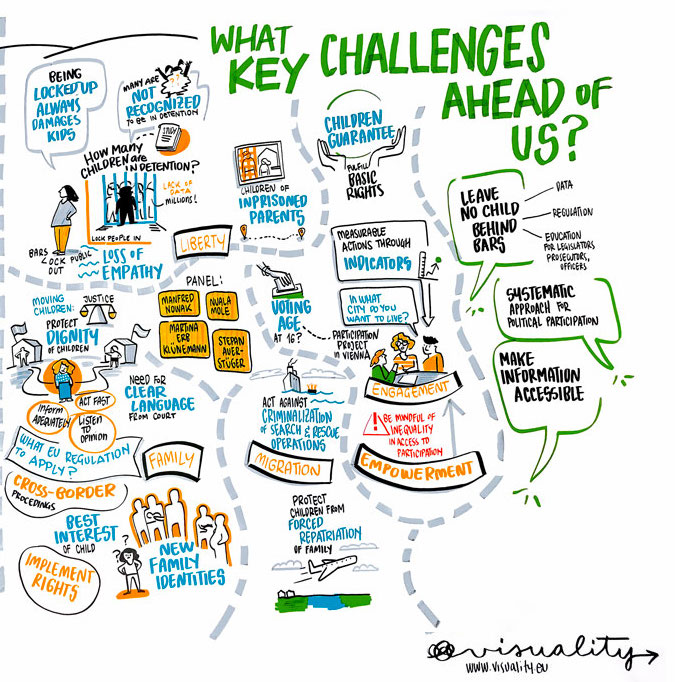The 12th EU Forum on the Rights of the Child, organised by the European Commission and held this year on 2-3 April 2019 in Brussels, is an annual gathering of key actors from EU Member States (including Iceland, Liechtenstein, Norway, Switzerland and the Western Balkans) in the interest of promoting good child’s rights practices in Europe. Coming on the 30th anniversary of the adoption of the United Nations Convention on the Rights of the Child and the 10th anniversary of the entry into force of the European Charter for Fundamental Rights, the conference, under the theme Where we are and where we want to go, afforded the opportunity for nearly 300 participants, including a cadre of children and young people, to reflect on current challenges to child’s rights and probable good practice solutions to confront them in the European milieu.
In particular focus this year were three child’s rights subtopics, notably the protection of migrant children, Children’s rights in the digital world and the participation of children and young people in the European political realm. The conference was divided into two parts, during which plenary sessions and workshops were held. Day one focused on taking stock of where we are, including defining challenges and problems. On day two, participants reconvened to consider good practice recommendations to respond to these challenges.
Among the challenges that were raised were, in no particular order: statelessness and the precarity of migrant children both internationally and in Europe; education gaps in every country; the presence of policies in countries where rights-based practices are regressing towards more hard-line practices, including as they affect gender equality; providing safety and considering the rights of children in digital spaces; and children deprived of their liberty. There are significant gaps in the protection of children’s rights, especially when it comes to the failure of political bodies to consider child’s rights—and to include children’s voices.
Numerous good practices and recommendations came out of the second day of proceedings. Among these were: the inclusion of children’s voices; increased educational opportunities; considering children as children foremost (‘a foreign child is not a foreigner and not a migrant: it is merely a child’); sharing data and information; collaborating across sectors, disciplines and organisations; and shaping public narratives to include and consider child’s rights language as a value.
Find summary reports and recordings of the Forum here.


